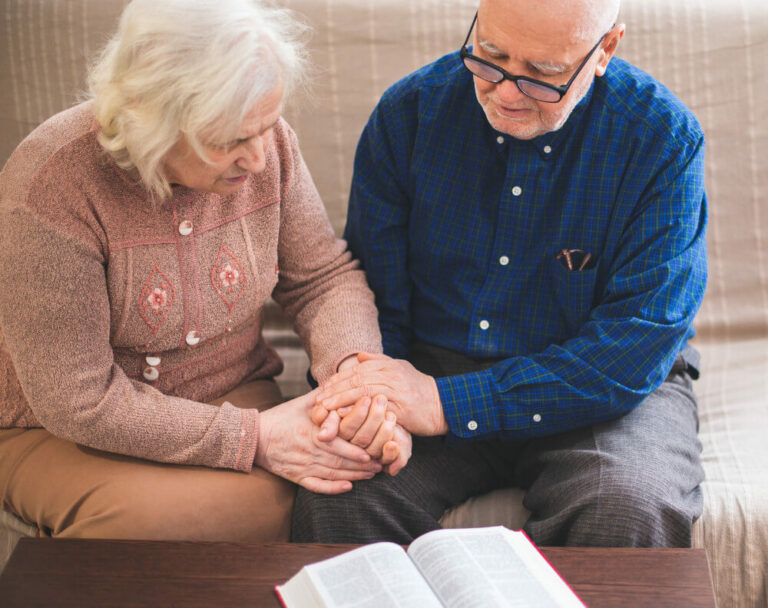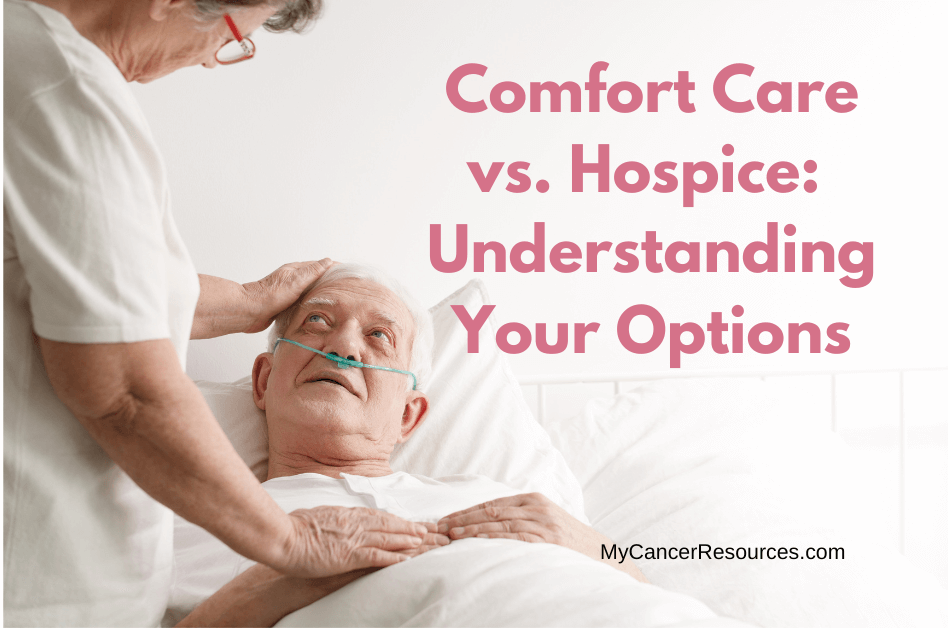
One of the reasons I am such a huge advocate for hospice care at the end of life is because of their holistic approach to care. The hospice philosophy looks at the whole person, and works to make them (and their caregivers, family members and loved ones) comfortable and improve their quality of life at the end of life.
Hospice care is for when curative treatments (treatments designed to kill off cancer cells) have stopped working, or someone has decided to stop treatment. Often this is because the side effects have been too much to deal with, and they simply want to be comfortable and enjoy the remaining time they have left on earth, surrounded by friends and loved ones. Typically, hospice is called in when it is expected that the person with cancer has about six months or less to live.
One of the unsung heroes on the hospice care team is the hospice chaplain. You might be wondering what does a hospice chaplain do? The role of a hospice chaplain is often misunderstood, so this post will cover what a chaplain is, provide examples of what a hospice chaplain does and end with some Frequently Asked Questions about this team member whose important role centers around the patient’s spiritual needs.
What is a Hospice Chaplain?
A hospice chaplain is a spiritual counselor who provides support, comfort and spiritual guidance to patients and their families during end-of-life care. They address the spiritual and emotional needs of patients, regardless of their religious affiliation or beliefs.
For some, a cancer diagnosis leads to a crisis of faith. For others, their spiritual beliefs become more solid. Others think about spirituality for the first time.
The purpose of a hospice chaplain is to provide a safe and supportive space for patients to discuss their fears, concerns, and beliefs. They provide a listening ear, compassionate support, and help patients navigate their spiritual and emotional journey. Hospice chaplains offer a range of services to patients and their families, including prayer, sacraments, and guidance on end-of-life rituals and traditions.
Hospice Chaplain Education and Training
Hospice chaplains typically have completed an advanced degree (typically a master’s degree) in divinity, pastoral counseling, or a related field and may be ordained ministers. They also often have several years of experience providing spiritual care in hospitals or hospice organizations.
Hospice chaplains learn about a variety of religious and spiritual beliefs so that they can serve patients from diverse backgrounds. Chaplains also learn how to provide care that is respectful and sensitive to the patient’s beliefs and values.
Hospice chaplains also complete specialized training in end-of-life care. This includes training on grief and loss, communication skills, and ethics in end of life care.
What Does a Hospice Chaplain Do?
A hospice chaplain’s job is to support the patient on their spiritual journey. This can look different for each patient, but the goal is for the patient to find spiritual peace.
Some examples of what a hospice chaplain does include:
- spiritual counseling
- discuss the patients’ belief systems and their thoughts about nearing the end of life
- reading from religious texts important to the patient, such as the Bible or the Torah.
- help the patient conduct a life review, looking back at highs and lows over their life
- listen and provide guidance as the patient decides upon memorial or funeral arrangements
- provide grief support for both the patient and their loved ones
- Listen while the patient talks about whatever they want to get off their chest
What’s important to remember is that hospice patients are not required to meet with a chaplain, nor accept any of their services. Chaplains follow the lead of the patient, and only do what is asked of them. Beliefs are not pushed upon the patient or family in any way.
Frequently Asked Questions About Hospice Chaplains
Are hospice chaplains only for Christians?
No, hospice chaplains are available to provide spiritual and emotional support to patients and families of all faiths, as well as those who do not identify with a particular religion. They will respect your beliefs and provide support that aligns with your values and wishes.
Do hospice chaplains only work with patients who are actively dying?
No, hospice chaplains provide support to patients and families at any stage of the end-of-life journey.
Can hospice chaplains help with funeral planning?
Yes, hospice chaplains can provide guidance and support in planning end-of-life rituals and traditions, including funeral planning.
What if I don’t believe what the chaplain believes, or don’t want to talk about spiritual or religious topics?
Hospice chaplains respect the patient’s wishes and will not push their own spiritual or religious beliefs on them. They will only offer spiritual or religious support if it is requested.
Often, conversations with hospice chaplains have nothing to do with spiritual topics.
Can hospice chaplains provide sacraments or religious rites?
Yes, hospice chaplains can provide sacraments or religious rites to patients who request them.
Can hospice chaplains visit patients in their home or in the hospital?
Yes, hospice chaplains can provide support in any setting, including the patient’s home, hospital, or hospice facility.
Do I have to pay for hospice chaplain services?
No, there are no additional fees for receiving chaplain services.
What if I tell the hospice chaplain something I don’t want my family members to know?
Hospice chaplains maintain confidentiality in their interactions with patients and families. They respect the patient’s privacy and only share information with other members of the hospice team when necessary to provide care.
Conclusion
Hospice chaplains play an important role in providing spiritual and emotional support to patients and families facing the end-of-life. They respect the patient’s wishes and values and provide support that goes along with the patients’ beliefs and cultural traditions.
If you or a loved one is eligible for hospice and are in need of spiritual or emotional support, consider reaching out to a hospice chaplain. They can help you navigate the end-of-life journey with compassion, dignity, and respect.



